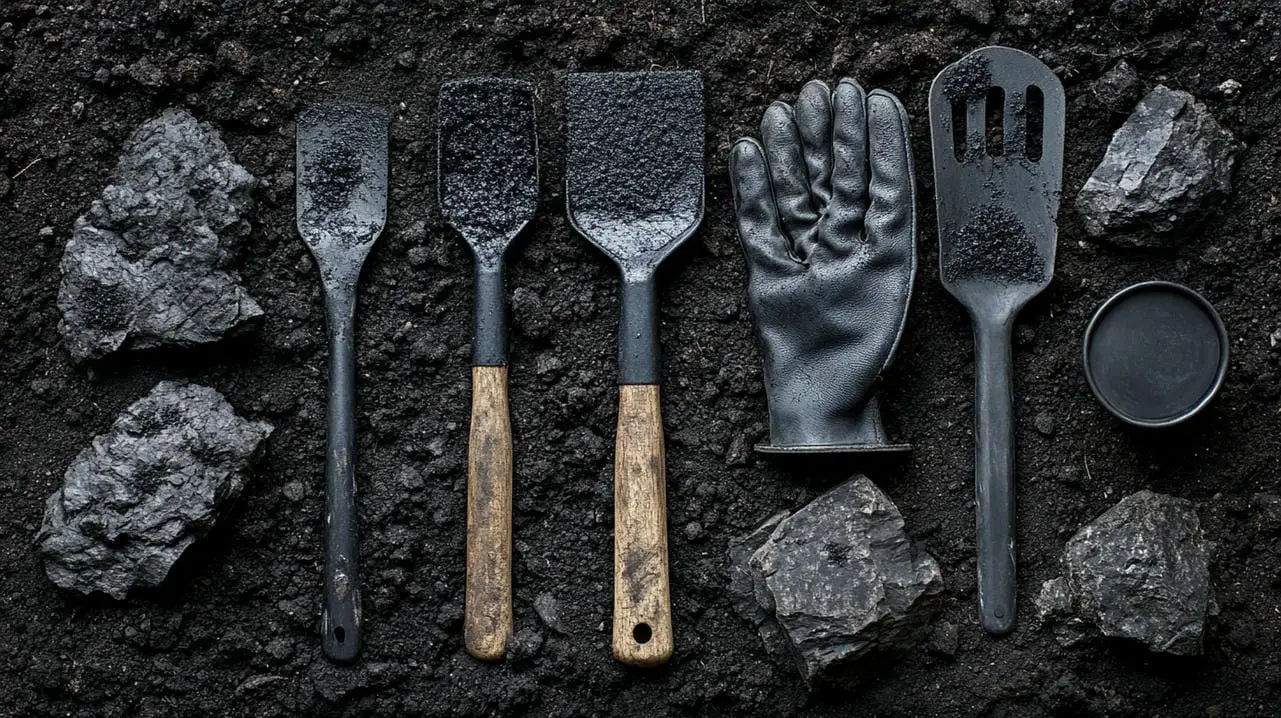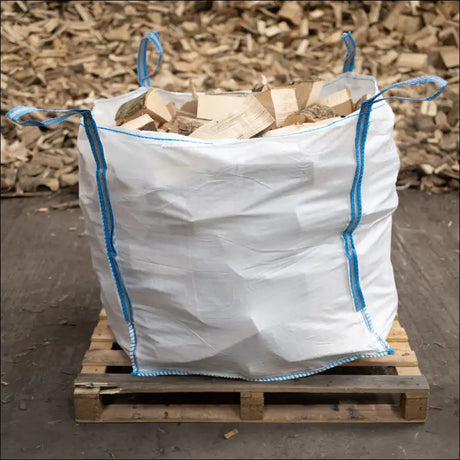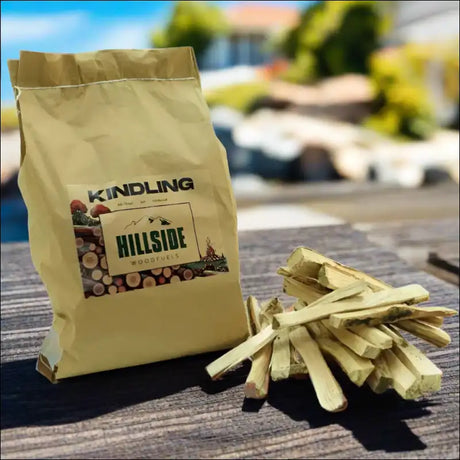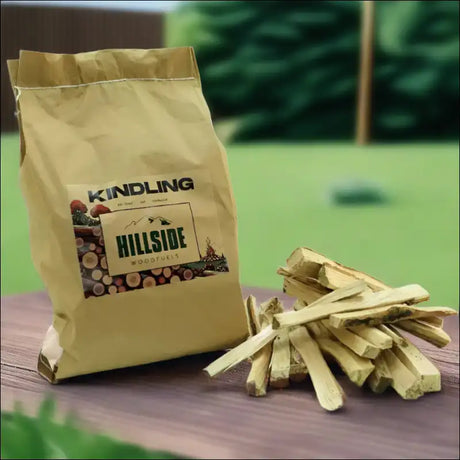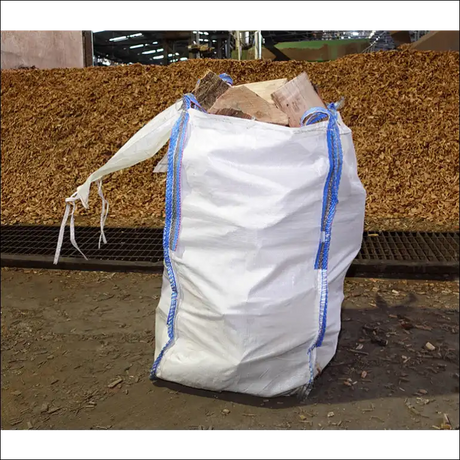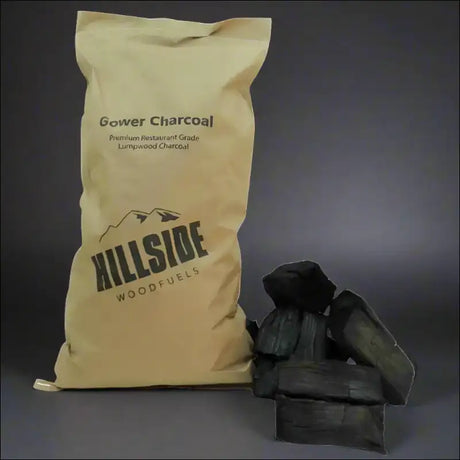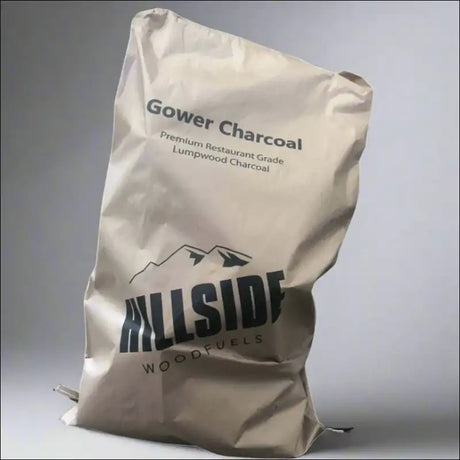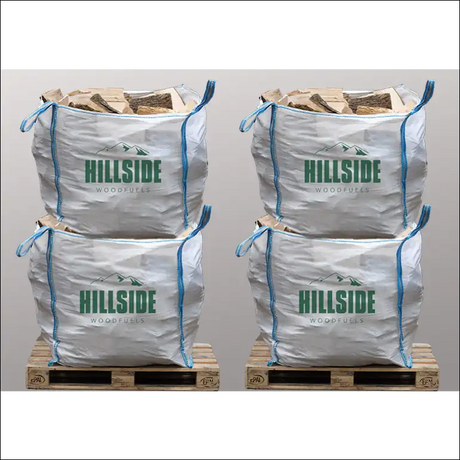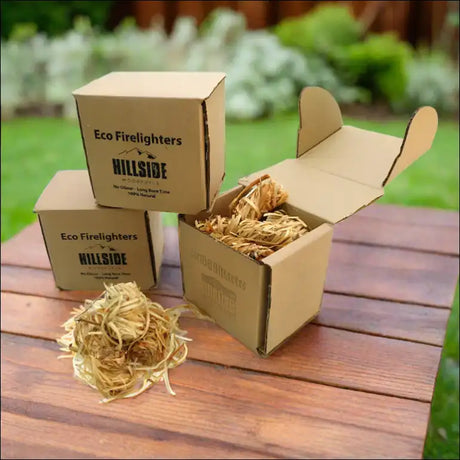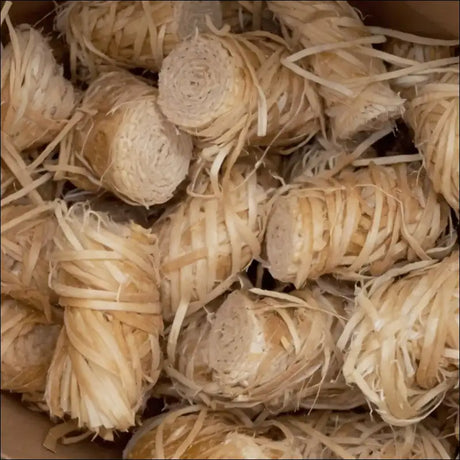After enjoying the warmth and ambiance of a cosy fire, you're left with a pile of ash. But before you sweep it away, consider the many practical uses for this often-overlooked byproduct. Firewood ash, far from being mere waste, is a versatile resource that can benefit your garden, home, and even your health. In this article, we'll explore 30 creative and eco-friendly ways to put your firewood ash to good use.
What is Firewood Ash?
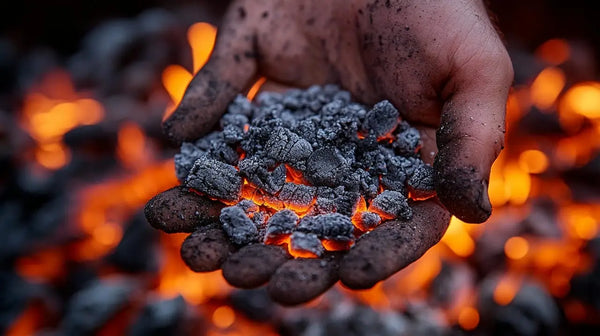
Before we dive into its uses, let's understand what firewood ash actually is. Ash is the powdery residue left behind after wood has been completely burned. It's composed primarily of mineral elements that were present in the wood's structure. The composition can vary depending on the type of wood burned, but generally includes calcium, potassium, magnesium, and other trace minerals.
Is Ash Good for Plants?

One of the most common questions about firewood ash is whether it's beneficial for plants. The short answer is yes, but with some caveats. Firewood ash can be an excellent addition to your garden, but it's important to use it correctly.
Firewood Ash as a Garden Amendment
-
Soil pH Adjustment: Firewood ash is alkaline, making it an excellent natural alternative to lime for raising soil pH. This is particularly useful if you have acidic soil and want to grow plants that prefer more alkaline conditions. However, be cautious when using ash around acid-loving plants like blueberries, rhododendrons, and azaleas.
-
Natural Fertiliser: Ash contains potassium, calcium, and other trace minerals that plants need. It's particularly high in potassium, which promotes flowering and fruiting in plants. However, it's important to note that ash doesn't contain nitrogen, so it should be used in conjunction with other fertilisers for balanced nutrition.
-
Compost Enrichment: Adding a small amount of ash to your compost pile can help balance the pH and add valuable minerals. However, use it sparingly - too much can make your compost too alkaline.
-
Pest Control: Create a barrier around plants with wood ash to deter slugs and snails. The dry, abrasive nature of ash makes it uncomfortable for these pests to cross.
-
Algae Control in Ponds: A small amount of ash can help control algae growth in garden ponds by altering the pH and adding minerals that aquatic plants need.
Beyond the Garden: Household Uses for Firewood Ash

Firewood ash isn't just for the garden - it has a multitude of uses around the home as well.
-
Natural Cleaner: Mix ash with a little water to create a mildly abrasive cleaning paste. This can be used to clean glass, metal, and even the glass door of your wood-burning stove.
-
Driveway De-icer: Sprinkle ash on icy paths or driveways. It provides traction and helps melt ice, similar to salt but without the potential damage to plants.
-
Odour Absorber: Place a small container of ash in your refrigerator or freezer to absorb odours, much like baking soda.
-
Stain Remover: For oil stains on concrete, sprinkle ash over the stain and let it sit. The ash will absorb the oil, making it easier to clean.
-
Silver Polisher: Make a paste with ash and water to gently polish silver items.
-
Fire Extinguisher: Keep a bucket of ash near your fireplace. In case of a small fire, you can use it to smother the flames.
Health and Beauty Applications

Believe it or not, firewood ash has been used in health and beauty treatments for centuries.
-
Soap Making: Historically, ash was used to make lye, a key ingredient in soap production. While modern soap-making typically uses commercial lye, some artisanal soap makers still use wood ash lye.
-
Tooth Cleaning: In a pinch, ash can be used as a tooth cleaner. Its abrasive nature can help remove plaque, but use cautiously and infrequently as it can be harsh on enamel.
-
Skin Treatment: Some people use diluted ash water as a skin treatment for minor rashes or insect bites, thanks to its alkaline properties. However, always patch test first and consult a doctor for persistent skin issues.
Environmental and Outdoor Uses
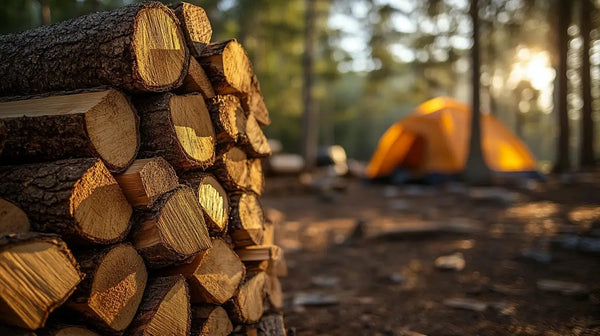
Firewood ash can be a valuable resource for various outdoor and environmental applications.
-
Forest Fertilisation: In some managed forests, ash is spread to return nutrients to the soil and counteract soil acidification.
-
Dust Bath for Chickens: If you keep chickens, they'll love a dust bath made with wood ash. It helps them clean their feathers and can deter parasites.
-
Compost Toilet Additive: In composting toilets, ash can be added after each use to control odours and aid in the composting process.
-
Campfire Cooking: When camping, a bed of ash can provide an even cooking surface for campfire cooking.
Artistic and Craft Uses

Don't let your creativity stop at practical applications - ash can be used in various artistic endeavours too.
-
Natural Dye: Ash can be used to create a grey dye for fabrics or paper.
-
Ceramic Glazes: Some potters incorporate wood ash into their glazes for unique effects.
-
Charcoal Drawing: While not exactly the same as commercial charcoal, wood ash can be used for sketching and drawing.
Industrial and Scientific Applications
While these might not be applicable for household use, it's interesting to note some industrial and scientific applications of wood ash.
-
Concrete Additive: In some applications, wood ash is used as a partial replacement for cement in concrete, improving its properties.
-
Water Filtration: Activated charcoal, which is often made from wood, is commonly used in water filtration systems.
-
Scientific Research: Ash is sometimes used in archaeological and geological research to study past environments and human activities.
Eco-Friendly Alternatives
As we become more environmentally conscious, finding sustainable uses for byproducts like firewood ash is increasingly important.
-
Natural De-greaser: For tough, greasy messes, ash can be an effective and eco-friendly cleaning solution.
-
Biodiesel Production: In some biodiesel production processes, wood ash is used as a catalyst.
-
Soil Stabilisation: In construction, wood ash can be used to stabilise soil, reducing the need for chemical additives.
Safety Considerations
While firewood ash has many uses, it's important to handle it safely:
-
Proper Storage: Store ash in a metal container with a tight-fitting lid to prevent fire hazards.
-
Protective Gear: When handling ash, wear gloves and a dust mask to avoid skin irritation and inhalation of fine particles.
-
Responsible Disposal: If you have more ash than you can use, dispose of it responsibly. Many local councils have guidelines for ash disposal.
Making the Most of Your Firewood Ash
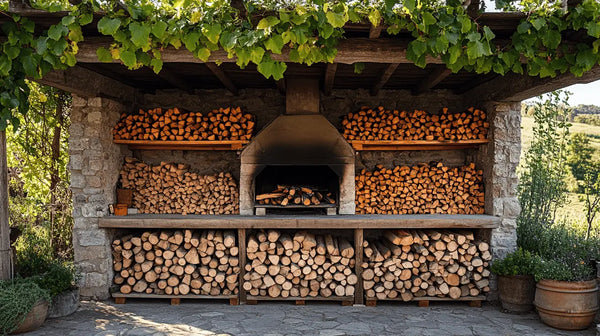
From enhancing your garden to cleaning your home, the uses for firewood ash are numerous and diverse. By repurposing this byproduct, you're not only reducing waste but also tapping into a valuable resource that our ancestors have used for centuries.
As you enjoy the warmth of your wood-burning stove or fireplace this winter, remember that the ash you're left with is far from useless. Whether you're an avid gardener, a DIY enthusiast, or simply someone looking to live more sustainably, there's a use for firewood ash that's perfect for you.

Remember, the key to using firewood ash effectively is moderation and proper application. Always test in small amounts first, especially when using it in your garden or for cleaning purposes. With these tips, you can transform what was once considered waste into a valuable resource, making your home more sustainable and self-sufficient.
So the next time you clean out your fireplace or wood-burning stove, don't just throw the ash away. Consider how you might put it to good use. From nourishing your garden to cleaning your home, the possibilities are vast. Embrace the full cycle of your firewood, from the cosy flames to the useful ash, and discover the satisfaction of making the most of this often-overlooked resource.
Frequently Asked Questions
1. Is all firewood ash safe to use in the garden?
Answer: Not all firewood ash is equally safe or beneficial for garden use. Ash from untreated, natural wood is generally safe. However, avoid using ash from treated wood, painted wood, or wood that has been exposed to chemicals, as these can contain harmful substances. Also, ash from coal or charcoal briquettes should not be used in gardens due to potential contaminants.
2. How much ash should I add to my compost pile?
Answer: As a general rule, add no more than 5% ash to your compost pile by volume. For a typical home compost bin, this translates to about a shovelful of ash for every 5 gallons of compost. Over-applying can make your compost too alkaline and disrupt the composting process.
3. Can I use firewood ash on all types of soil?
Answer: Firewood ash is most beneficial on acidic soils with a pH below 6.5. It's less useful on neutral or alkaline soils, and can be harmful to plants that prefer acidic conditions. Always test your soil pH before applying ash, and avoid using it around acid-loving plants like blueberries, rhododendrons, and azaleas.
4. How often should I apply ash to my garden?
Answer: The frequency of ash application depends on your soil's needs. Generally, it's best to apply ash once a year in spring before planting. However, always test your soil pH first. If your soil is already alkaline or neutral, you may not need to apply ash at all.
5. Is it safe to use firewood ash for tooth cleaning?
Answer: While ash has been traditionally used for tooth cleaning, it's not recommended as a regular practice. The abrasive nature of ash can damage tooth enamel over time. If you do use it in an emergency situation, rinse thoroughly afterwards and don't make it a habit. Always consult with a dentist for proper dental hygiene practices.
6. Can firewood ash really be used to make soap?
Answer: Yes, firewood ash can be used to make lye for soap making, but it's a complex process that requires careful handling of caustic materials. It's not recommended for beginners. Modern soap making typically uses commercial lye for consistency and safety. If you're interested in ash soap, it's best to learn from an experienced soap maker.
7. How long does firewood ash retain its beneficial properties?
Answer: When stored properly in a dry place, firewood ash can retain its beneficial properties for several months to a year. However, its effectiveness as a pH adjuster or fertilizer may decrease over time as it absorbs moisture from the air. For best results, use fresh ash or ash that has been stored in an airtight container.
8. Can I use firewood ash in my vegetable garden?
Answer: Yes, you can use firewood ash in vegetable gardens, but with caution. It's particularly beneficial for crops that like slightly alkaline soil, such as tomatoes, peppers, and root vegetables. However, use it sparingly and avoid applying it directly to plant leaves or stems. Always mix it into the soil and water well after application.
9. Is it safe to dispose of firewood ash in regular trash?
Answer: In most cases, cold firewood ash can be disposed of in regular trash. However, always check your local regulations first. Some areas may have specific guidelines for ash disposal. Ensure the ash is completely cool and stored in a metal container before disposal to prevent fire hazards.
10. Can firewood ash help with pest control in the garden?
Answer: Yes, firewood ash can help deter some garden pests. It's particularly effective against soft-bodied pests like slugs and snails when sprinkled around plants. However, it needs to be reapplied after rain. Remember that ash can also deter beneficial insects, so use it judiciously.
11. Does the type of wood affect the quality of the ash for gardening?
Answer: Yes, the type of wood does affect ash quality. Hardwoods generally produce more nutrient-rich ash than softwoods. Ash from oak, maple, and fruit trees is particularly beneficial. Avoid using ash from toxic woods like black walnut or pressure-treated lumber in the garden.
12. Can firewood ash be used in hydroponic systems?
Answer: While firewood ash can be beneficial in traditional gardening, it's not recommended for hydroponic systems. The ash can significantly alter the pH and nutrient balance of the hydroponic solution, potentially harming plants. Stick to specially formulated hydroponic nutrients for these systems.

